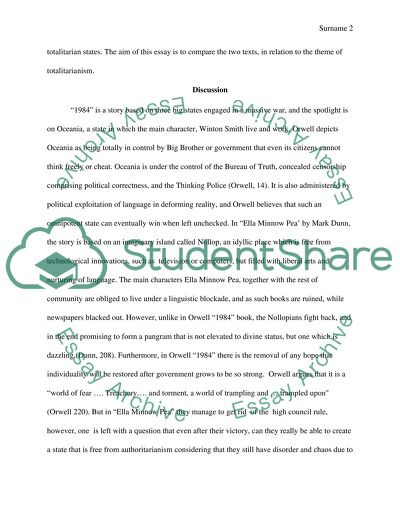Cite this document
(“Totalitarianism:1984 by George Orwell and Ella Minnow Pea by Mark Dunn Essay”, n.d.)
Totalitarianism:1984 by George Orwell and Ella Minnow Pea by Mark Dunn Essay. Retrieved from https://studentshare.org/literature/1462140-totalitarianism1984-by-george-orwell-and-ella-minnow-pea-by-mark-dunn
Totalitarianism:1984 by George Orwell and Ella Minnow Pea by Mark Dunn Essay. Retrieved from https://studentshare.org/literature/1462140-totalitarianism1984-by-george-orwell-and-ella-minnow-pea-by-mark-dunn
(Totalitarianism:1984 by George Orwell and Ella Minnow Pea by Mark Dunn Essay)
Totalitarianism:1984 by George Orwell and Ella Minnow Pea by Mark Dunn Essay. https://studentshare.org/literature/1462140-totalitarianism1984-by-george-orwell-and-ella-minnow-pea-by-mark-dunn.
Totalitarianism:1984 by George Orwell and Ella Minnow Pea by Mark Dunn Essay. https://studentshare.org/literature/1462140-totalitarianism1984-by-george-orwell-and-ella-minnow-pea-by-mark-dunn.
“Totalitarianism:1984 by George Orwell and Ella Minnow Pea by Mark Dunn Essay”, n.d. https://studentshare.org/literature/1462140-totalitarianism1984-by-george-orwell-and-ella-minnow-pea-by-mark-dunn.


